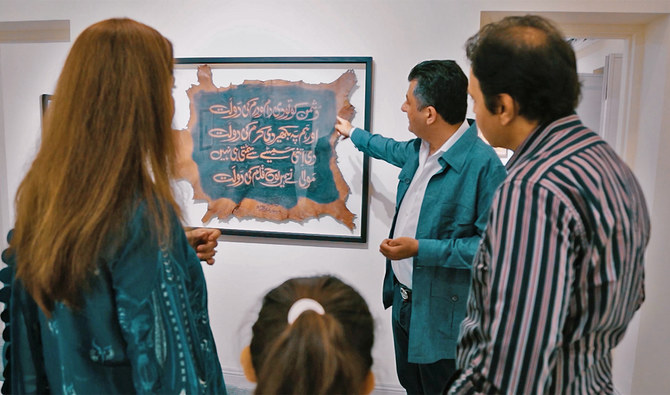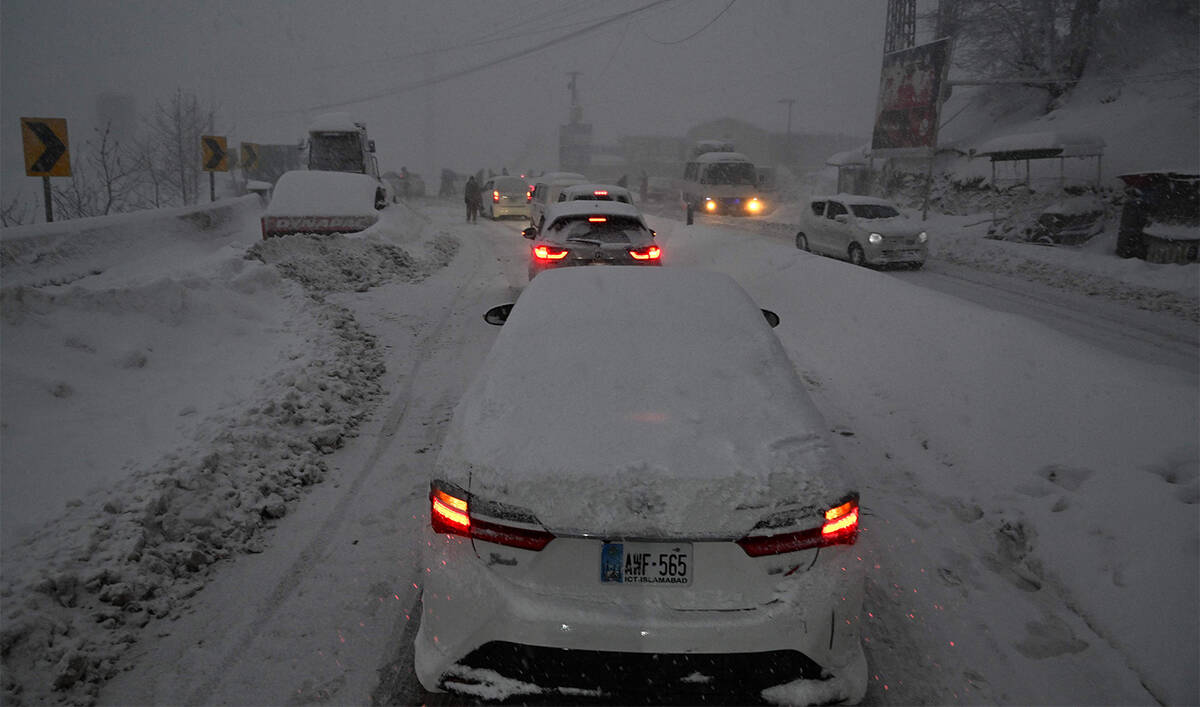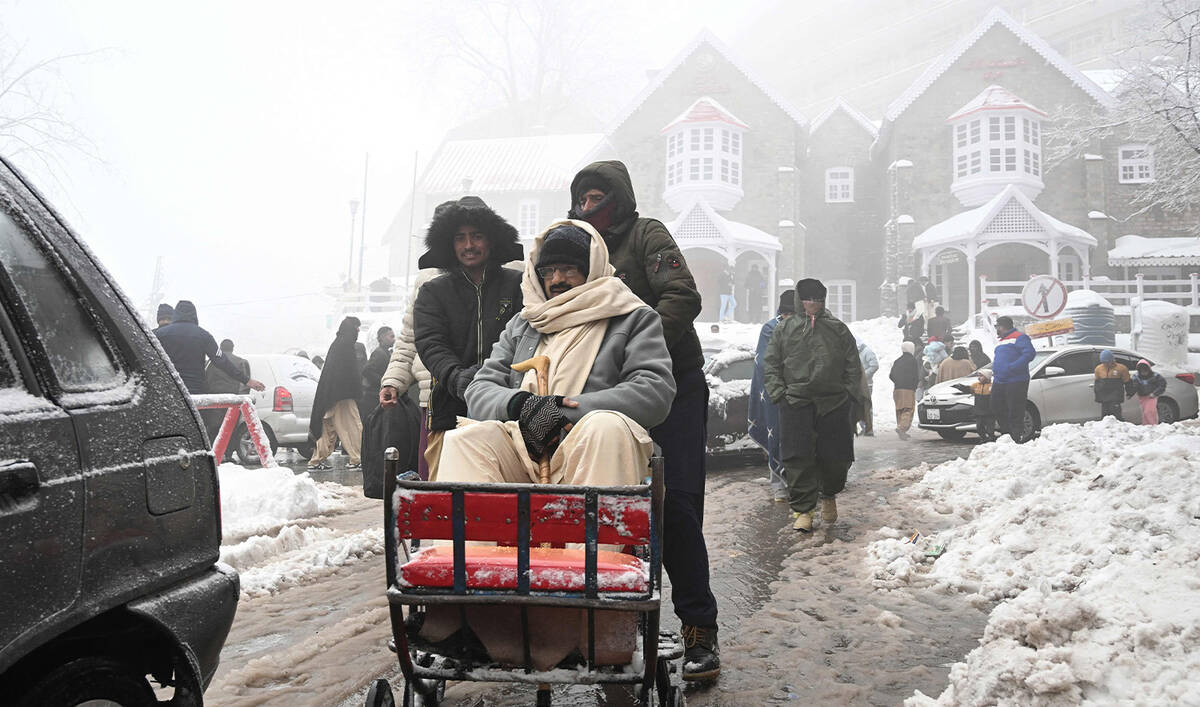LAHORE: You would find it difficult to imagine that Jawad Zia, a man who owns 300 works of art from Pakistan, who bought a signed cricket bat from the 1992 cricket World Cup final at an auction house and now runs an art gallery in Lahore, has spent almost the entirety of his life in the United Arab Emirates.
Such is Zia’s passion and his attention to detail when he talks about art that you assume he has always been in the business of producing it. Art seems second nature to him. So, you would find it even more difficult to imagine that up until he took early retirement a few years ago, Zia, 46, was working at MBC’s Dubai-based Al Arabiya news network, in the Human Resources department, rather than as a professional agent or curator in the global art world.
The only surprise is that the opening of Numaish Gah earlier this month in Lahore is Zia’s first formal foray into the art world, an attempt at “wider audiences, institutions, foundations and museums through collaboration.”
“I want to improve the outreach of younger artists in Pakistan, get them more exposure, both here and abroad,” Zia said about his sudden entry into a world he has only admired from a distance, for 25 years, as a collector.
“I want to bridge the gap between the old masters and contemporary art practices,” he added, using the term ‘old masters’ to refer to world-renowned Pakistani artists like Sadequain, Jamil Naqsh, Anna Molka, and Ustad Allah Bakhsh, among others in his collection.
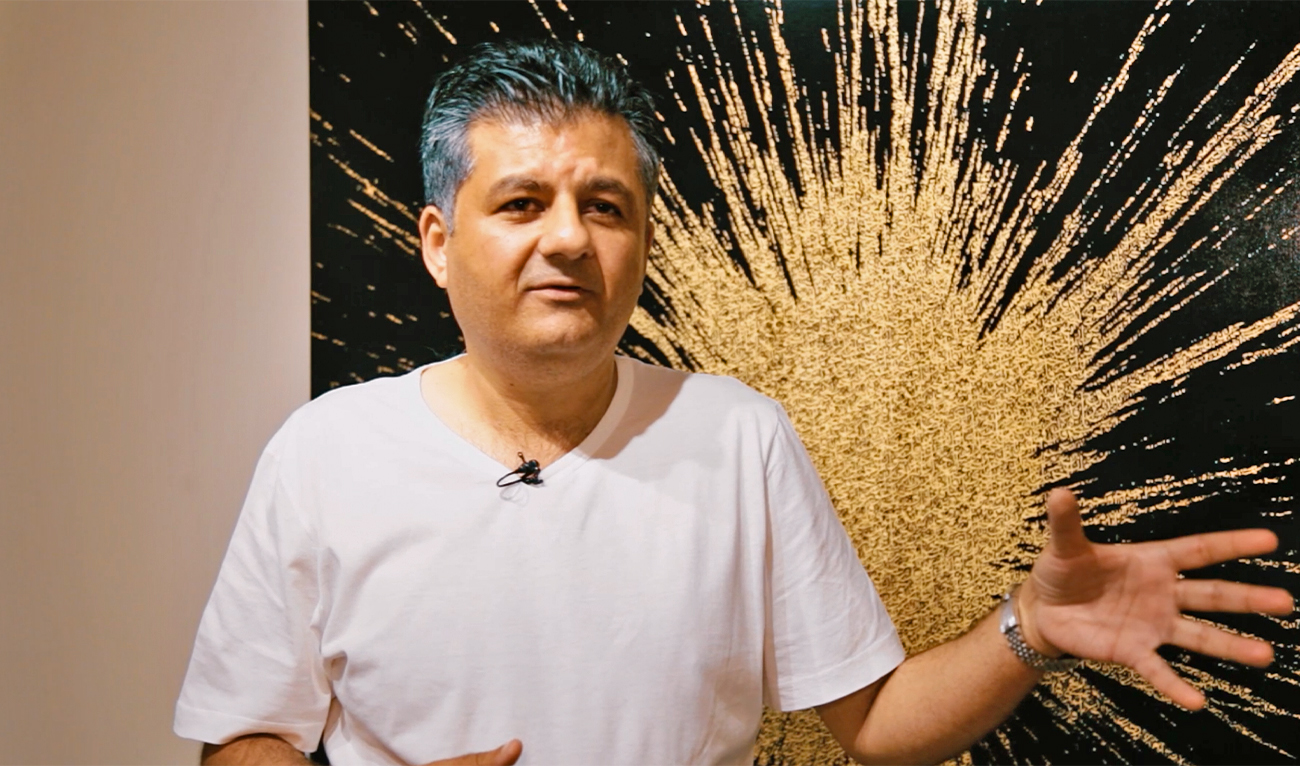
Pakistani art collector-turned-gallerist Jawad Zia (center) speaks to Arab News at the Numaish Gah’s opening exhibition in Lahore, Pakistan, on April 9, 2023. (AN photo)
True to his word — and with courteous donations of two more collectors from the Middle East — Zia has works by Sadequain, often lauded as Pakistan’s greatest calligraphers, sitting across a calligraphic piece by a 28-year-old, recent graduate from Lahore’s, Punjab University, Samara Shahid. The old and the new truly do meet in Zia’s world.
Numaish Gah’s opening exhibition is curated by Sindhi artist, Irfan Gul Dahri, and features another ten artists, four from his home province of Balochistan, one young Pakistani artist residing in Germany and one from Hyderabad in Sindh. The collection is called ‘It Is Written’, an eclectic mixture of styles with one common denominator: the Arabic language.
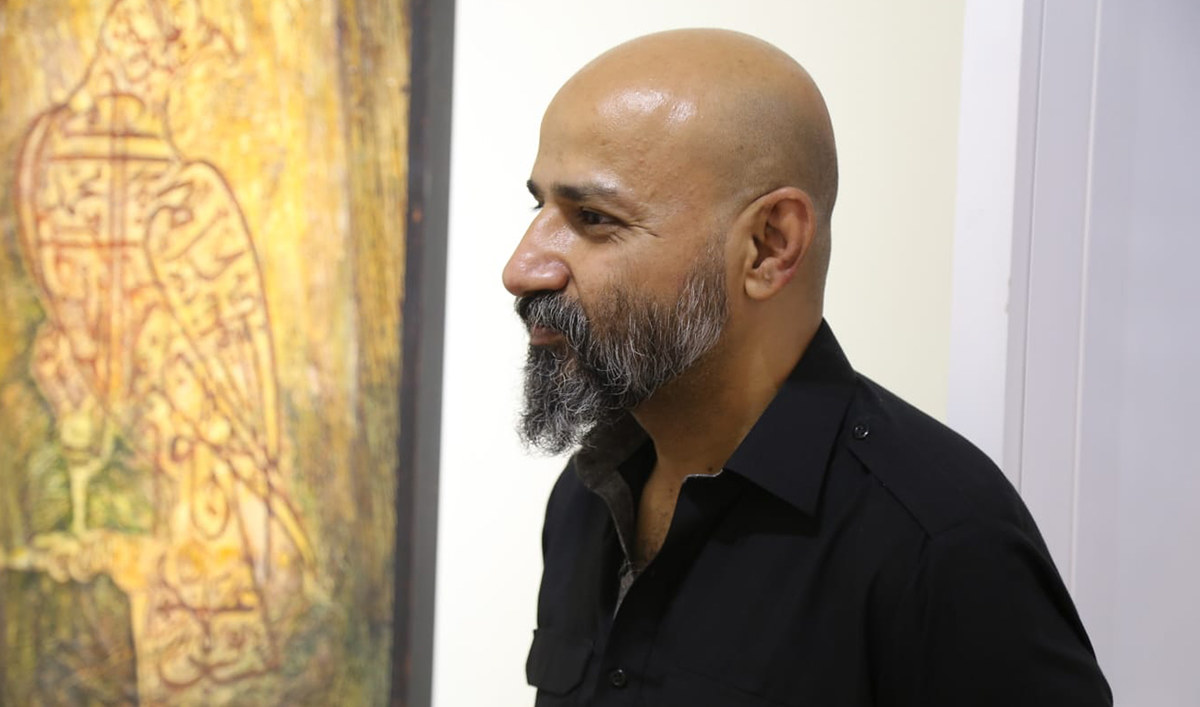
The photo taken on April 9, 2023, shows Sindhi artist, Irfan Gul Dahri standing next to his art at the Numaish Gah’s opening exhibition in Lahore, Pakistan. (AN Photo)
Samara Shahid’s work, titled ‘Pateela,’ has exquisite calligraphy in the Thuluth font, the same Arabic font used in the national flag of Saudi Arabia. If it wasn’t for Zia’s gallery, she would possibly have been one of the many burgeoning artists lost in transition.
In fact, a lot of contemporary artists in Pakistan, Zia said, did not know how to move from art education to engaging with the art world itself: “Around 8 out of 10 graduates struggle to make art for any sustained period of time, most give up, which is disheartening for art collectors like me.”
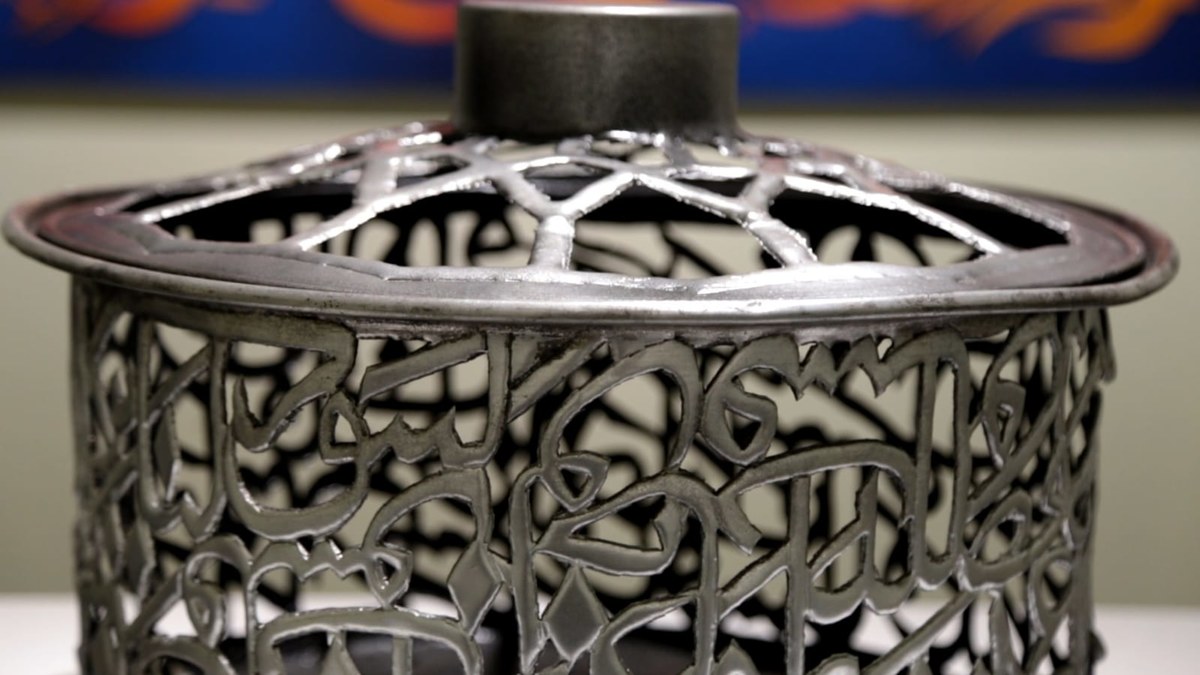
"Pateela", carved aluminum pot in Thuluth font by Samara Shahid, Numaish Gah, Lahore, April 9, 2023. (AN Photo)
Though born in Quetta, Zia chose Lahore as the city for his first gallery because he considers it the cultural hub of Pakistan, its heartbeat. He cited the examples of Shahzia Sikander, Rashid Rana and Salman Toor, contemporary artists who have found major international success but all hail from Lahore.
Speaking to Arab News, Zia said he wanted to bring together 10 foreign artists for the gallery’s next exhibition. As for this first one, it was so rooted in calligraphy and the Arabic script, he explained, partly because of the cultural and linguistic affinity Pakistanis have with the Arab world.
“I want young Pakistani artists to collaborate with other artists from the Middle East,” Zia said, hoping to see a reciprocal, mutually beneficial art and culture relationship develop between the two regions, both of whom the art collector considers home.
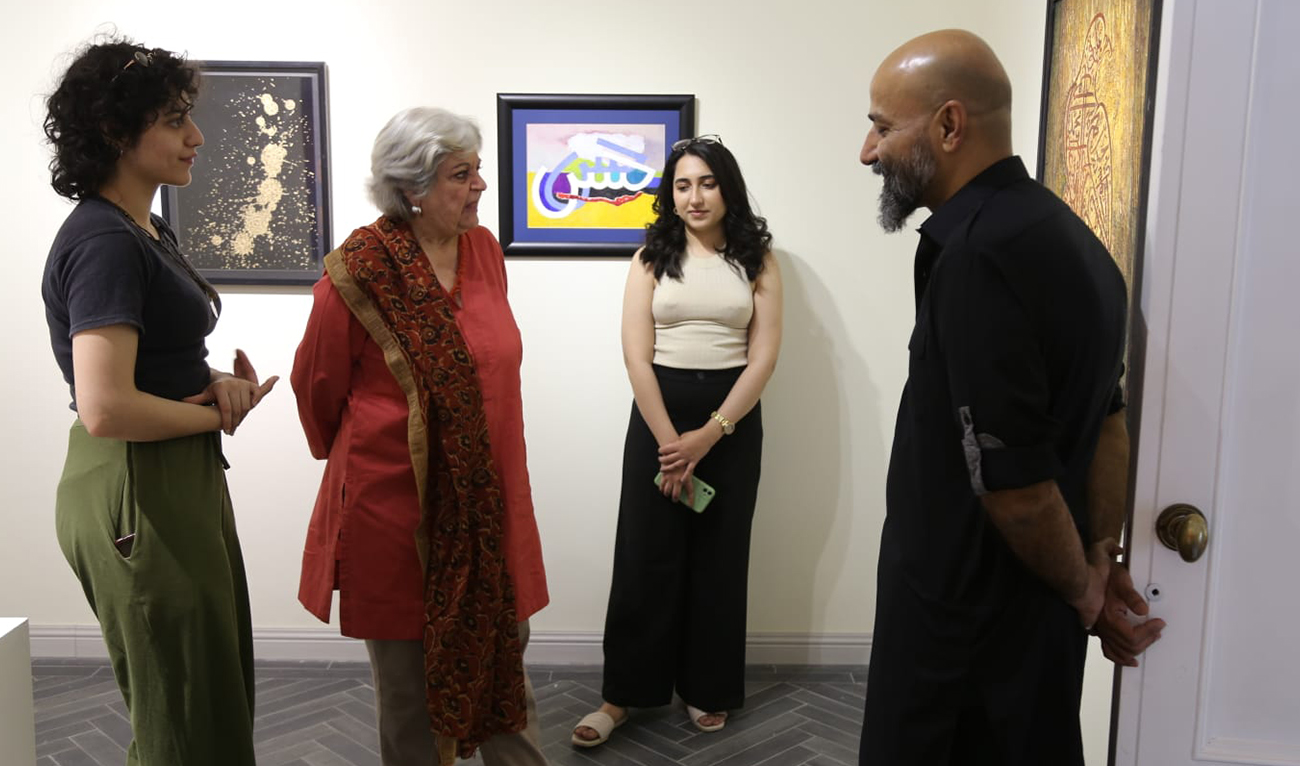
The photo taken on April 9, 2023, shows the curator of Gul Dahri (right) the curator of the Numaish Gah art gallery speaking with Saleema Hashmi (second left), a renowned Pakistani artist, and other local artists at the Numaish Gah’s opening exhibition in Lahore, Pakistan. (AN Photo)
His father was a military liaison officer from Pakistan — on deputation — in Abu Dhabi when the Emirates decided to leave the British Protectorate in 1971. He was only 6 years old when his family moved to the UAE. Now, what he truly wants is for Pakistani art to be more accessible, and bigger in scale, and to engage with the Middle East art world he knows best. And he certainly sees an appetite for it.
“Pakistani artists have always performed well at Art Dubai and Art Abu Dhabi and other galleries in Alserkal Avenue,” Zia said. “Pakistani artists have [also] conducted workshops in Saudi Arabia recently with Misk [a youth program started by Crown Prince Muhammad bin Salman] and other foundations, which was all well received.”
Dahri, the curator of Zia’s first exhibition, himself has had multiple exhibitions in the UAE.
His idea for the inaugural show of the gallery, “Likha Howa Hay” (It Is Written) visualizes text as art. The Arabic script, via a Persian detour, is the basis for the Urdu alphabet, and many of the local styles of calligraphy, Dahri explained.
One of Dahri’s favorite pieces in the show, “a textual recreation of the big bang theory,” as he called it — ‘The Beginning’ by Shiblee Muneer — has a black canvas with an explosion of Arabic letters in gold scattering like stars across the cosmos: “The idea is that God uttered a phrase and suddenly the universe came into being.”
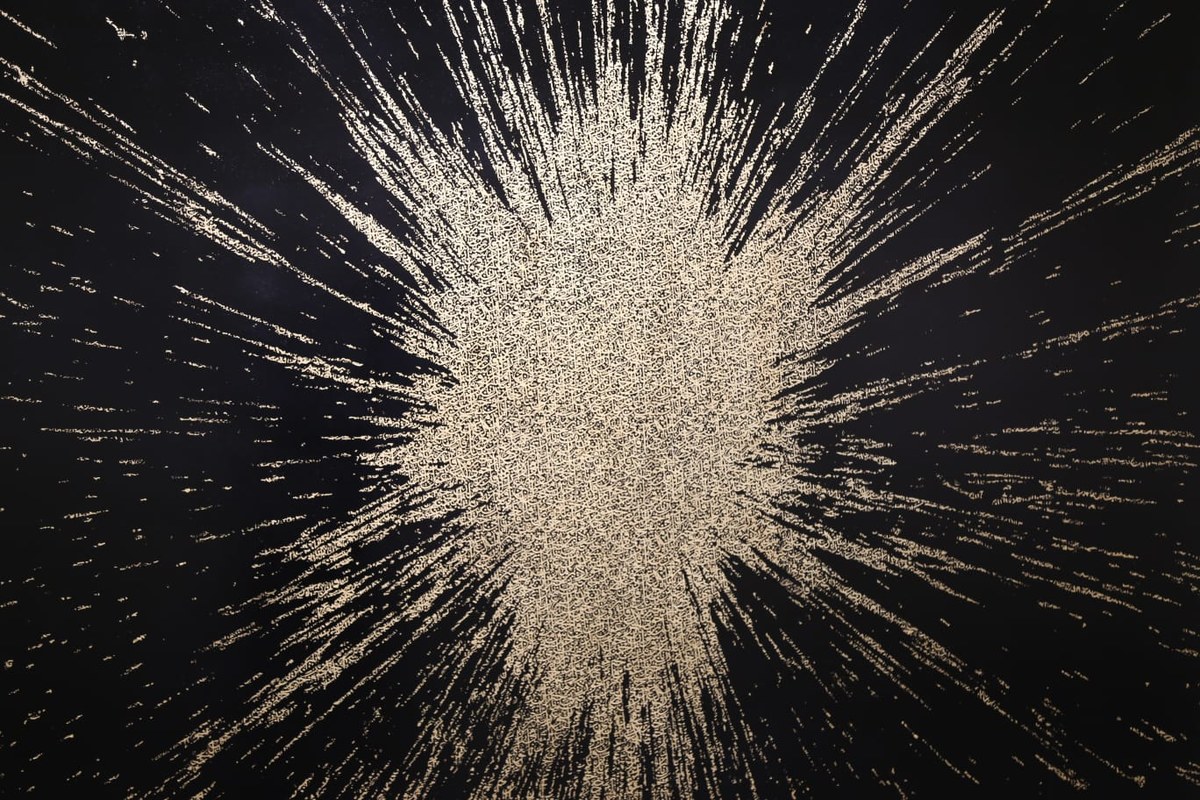
"The Beginning" by Shiblee Muneer, Numaish Gah, Lahore, on April 9, 2023. (AN photo)
Other memorable pieces include a garment that warriors used to wear under their armor, with Arabic inscriptions that were said to imbue spiritual protection from physical harm.
In Muslim cultures, Dahri said, the grandest ideas were often attached to scripture and text:
“The written word in the context of Islam is our way of conversing with the divine, text is sacred, and that sacredness is definitely coming from the Arab world. So, this exhibition is very strongly tied to the Arabic language ... This particular show is about text, its history and how text is related to human evolution.”
“In our Urdu context and particularly in Pakistan’s context, a very significant role is played by the Arabic language,” Dahri said. “So, for Pakistan, Arabic is not a foreign language, it’s like the second or third language maybe in the country.”


